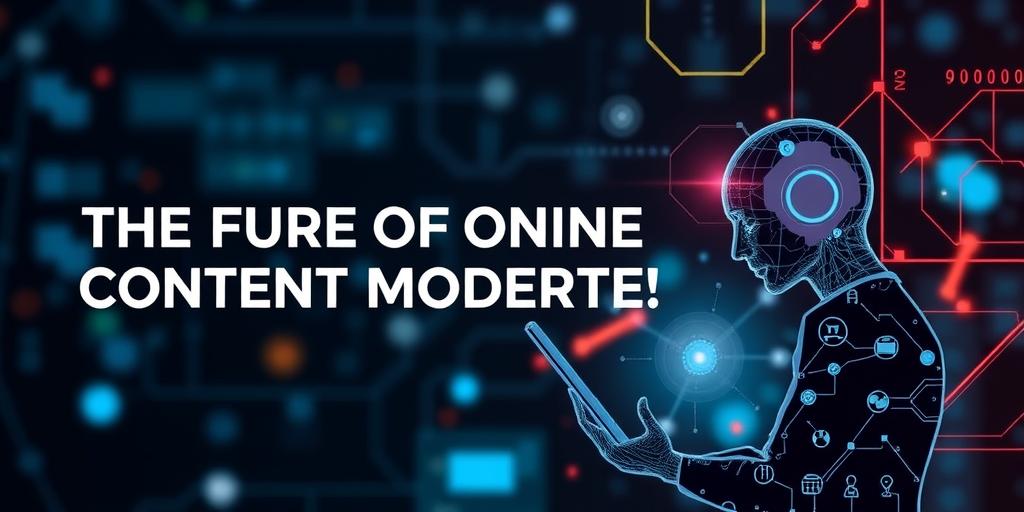The Future of Online Content Moderation: Navigating the Challenges Ahead
Online content moderation is at a critical juncture. As the volume of user-generated content continues to explode, platforms are struggling to keep pace with the ever-evolving landscape of harmful content. This includes hate speech, misinformation, and violent extremism. Traditional methods of content moderation are proving insufficient, and the need for more innovative and scalable solutions is becoming increasingly urgent.
The Limitations of Current Approaches
Currently, content moderation relies heavily on human moderators, often working long hours under stressful conditions. While human review remains essential for nuanced decision-making, it's simply not feasible to manually review every piece of content. Automated systems, such as keyword filtering and machine learning algorithms, offer a way to scale content moderation efforts. However, these systems are not without their flaws. They can be prone to false positives and negatives, and they often struggle to understand context and detect subtle forms of abuse.
Emerging Technologies and Strategies
Looking ahead, the future of content moderation will likely involve a combination of human expertise and advanced technologies. Some promising areas of development include:
- Artificial Intelligence (AI): AI-powered tools can assist human moderators by identifying potentially harmful content, prioritizing cases for review, and providing insights into emerging trends. Natural language processing (NLP) can help to better understand the context and sentiment of online conversations.
- Decentralized Moderation: Blockchain-based platforms and decentralized autonomous organizations (DAOs) are exploring new models of content moderation that distribute decision-making power among users.
- Proactive Interventions: Rather than simply reacting to harmful content after it has been posted, platforms are exploring proactive strategies to prevent it from spreading in the first place. This includes things like pre-emptive detection of coordinated disinformation campaigns and interventions to disrupt the spread of harmful content.
- Transparency and Accountability: Greater transparency and accountability are needed to build trust in content moderation processes. This includes clearly defined content policies, transparent enforcement mechanisms, and avenues for appeal.
The Importance of Collaboration
Addressing the challenges of online content moderation will require collaboration across multiple stakeholders, including platforms, policymakers, researchers, and civil society organizations. Platforms need to invest in developing and deploying effective content moderation tools and strategies. Policymakers need to create a regulatory environment that promotes responsible content moderation practices while protecting freedom of expression. Researchers need to continue to study the dynamics of online harms and develop new methods for detecting and mitigating them. Civil society organizations can play a crucial role in holding platforms accountable and advocating for user rights.
Key Takeaways
- Traditional content moderation methods are struggling to keep pace with the volume and complexity of online content.
- Emerging technologies like AI and decentralized moderation offer promising new approaches.
- Collaboration across multiple stakeholders is essential for addressing the challenges of online content moderation.
- Transparency and accountability are needed to build trust in content moderation processes.
The future of online content moderation will depend on our ability to develop and implement effective solutions that protect users from harm while upholding fundamental rights. It's a complex challenge with no easy answers, but by working together, we can create a safer and more equitable online environment.









